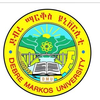Debre Markos University is a
prestigious public university
established in 2005 in Ethiopia. It is represented
by 154 scientists in the AD Scientific Index. The
university’s scientists are particularly concentrated in
Medical and Health Sciences (27 scientists), Social Sciences and Humanities (27 scientists), and Engineering & Technology (19 scientists).
* Total H Index Rankings
Ranking Based
On Selection :1

Immunology
Vaccinology
Molecular Biology
Bioinformatics
H-Index Metrics
Total
Last 6 Years
Last 6 Years / Total
8
8
1.000
* Total H Index Rankings
Ranking Based
On Selection :2

Genetic Diversity
Molecular Markers
Crop Improvement
Plant Tissue Culture
Plant Molecular Biology
H-Index Metrics
Total
Last 6 Years
Last 6 Years / Total
4
4
1.000
* Total H Index Rankings
Ranking Based
On Selection :3

Genetics
Genomics
Breeding
Biotechnology
Omics and Gene Editing
H-Index Metrics
Total
Last 6 Years
Last 6 Years / Total
4
4
1.000
* Total H Index Rankings
Ranking Based
On Selection :4

Biochemistry
cell biology
cancer metabolism
molecular genetics
HIV
H-Index Metrics
Total
Last 6 Years
Last 6 Years / Total
2
2
1.000
Yibeltal Akelew
H-Index Metrics
Total
Last 6 Years
Last 6 Years / Total
8
8
1.000
Immunology
Vaccinology
Molecular Biology
Bioinformatics
Adebabay Tazeb
H-Index Metrics
Total
Last 6 Years
Last 6 Years / Total
4
4
1.000
Genetic Diversity
Molecular Markers
Crop Improvement
Plant Tissue Culture
Plant Molecular Biology
Habtamu Kefale
H-Index Metrics
Total
Last 6 Years
Last 6 Years / Total
4
4
1.000
Genetics
Genomics
Breeding
Biotechnology
Omics and Gene Editing
Mohammed Jemal
H-Index Metrics
Total
Last 6 Years
Last 6 Years / Total
2
2
1.000
Biochemistry
cell biology
cancer metabolism
molecular genetics
HIV

